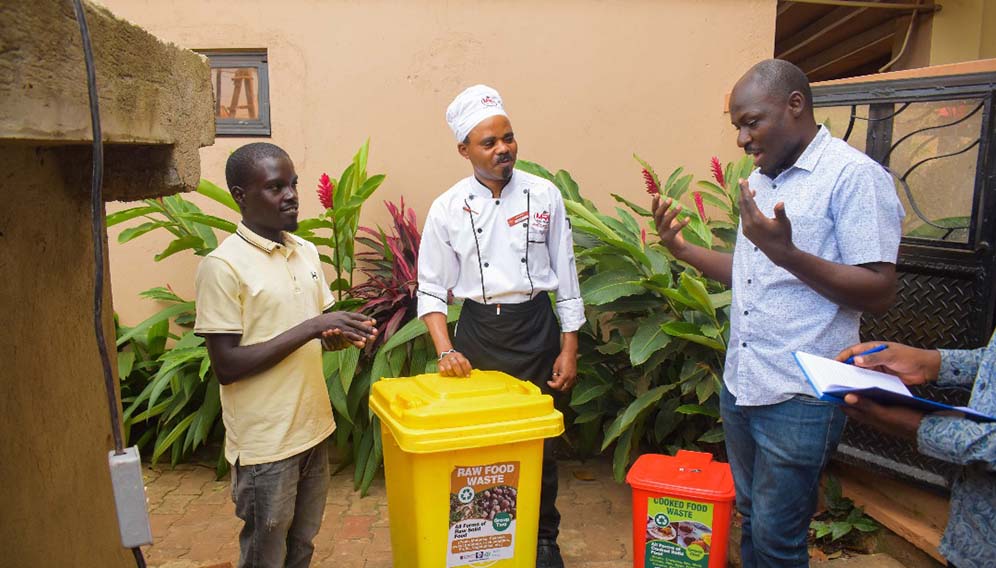SGCI News
By: Issiaka N’Guessan This article was produced with the support of the Science Funding Agencies Initiative (SFAI). [ABIDJAN] Medicinal plants may play an important role in the treatment of leishmaniasis….
By: Issiaka N’Guessan
This article was produced with the support of the Science Funding Agencies Initiative (SFAI).
[ABIDJAN] Medicinal plants may play an important role in the treatment of leishmaniasis. These are the findings of a study conducted by Ivorian researchers.
Entitled “Évaluation in vitro de l’activité anti-leishmanienne de quelques plantes médicinales ivoiriennes” (In vitro evaluation of the anti-leishmanial activity of a number of Ivorian medicinal plants), the aim of the study was “to search the Ivorian flora for medicinal plants capable of killing the leishmaniasis parasite in in vitro culture”, explains Roland Gueyraud Kipré, senior researcher at the Biology and Health Laboratory of the Université Félix Houphouët-Boigny in Abidjan, and coordinator of the research group.
Out of some twenty medicinal plants studied, the researchers were able to identify three plants whose active ingredients “showed promising activity against leishmania major, responsible for cutaneous leishmaniasis, and against leishmania donovani, responsible for visceral leishmaniasis”, says the researcher, who is also a specialist in the pharmacology of natural substances.
According to the researcher, leishmaniasis is considered an orphan disease. As a result, few pharmaceuticalcompanies take into consideration the search for new molecules, due to the low incidence of this disease in northern countries. The study, he points out, was carried out to make up for this shortcoming.
As such, this study can provide “scientific validation of the empirical knowledge of Ivorian traditional practitioners, thus integrating traditional knowledge into modern science. In medical terms, therapeutic options are limited and often costly. Medicinal plants can offer more accessible and potentially less costly alternatives”, maintains Roland Kipré.
What’s more, “current leishmaniasis drugs can have significant side effects. Plant-based treatments may offer options with fewer side effects. The active compounds identified can be developed into drugs after clinical trials, contributing to the fight against this parasitosis”, adds the researcher.
Alternative
According to the World Health Organization (WHO), leishmaniasis is caused by a protozoan parasite of the genus leishmania, transmitted by the bite of infected female sandflies.
There are three main forms of leishmaniasis: visceral (the most serious, as it is almost always fatal), cutaneous (the most common, usually causing skin ulcers) and mucocutaneous (affecting the mouth, nose and throat). An estimated 700,000 to one million new cases occur each year.
The WHO notes that it has little epidemiological information for West Africa. However, Paul Aboa Koffi, coordinator of the National Buruli Ulcer Control Program, says that work carried out by a group of researchers from the University of Bouaké shows that leishmaniasis is endemic in Côte d’Ivoire.
For the coordinator, treating this disease with medicinal plants can therefore be an alternative to the treatment offered by modern medicine.
“In Côte d’Ivoire, there’s a program to promote traditional medicine… It’s obvious that it’s an alternative. We can’t rely solely on modern medicine to solve all our problems. We are aware that this is an aspect we must take into account”, he asserts.
Norbert N’goran Djè, coordinator of the national program to combat neglected tropical diseases (NTDs), adds that the treatment of certain neglected tropical diseases using medicinal plants is giving rise to hope.
“So far, the medicines we’ve used have come from the pharmacy. Now that the medicinal plant component is developing, that’s what we’re waiting for. And there’s real hope […] A collaboration has been established so that we can use these medicinal plants, and we’re waiting with open arms for these discoveries and the use of these plants against NTDs”, he assures us.
Health sociologist Abel Adjet, for his part, maintains that the work coordinated by Roland Gueyraud Kipré is “worthy of praise and could contribute to the treatment of leishmaniasis”. However, the sociologist insists on the need to subject research into herbal treatments to scientific rigor.
“The empirical work of naturopaths needs to be subjected to a scientific sieve, so that the results of this work can correspond to standards. We know that medicine, even so-called modern medicine, is all about codification; it obeys certain standards. So products derived from traditional medicine through naturotherapists deserve to be subjected to the scientific sieve, but in collaboration with the naturotherapists who are the holders of this knowledge”, he argues.
Clinical trials
The study conducted by Roland Kipré and his team was funded by the Fonds pour la science, la technologie et l’innovation (FONSTI) as part of the Scientific Research Granting Agencies Initiative (SRGI). The specialist in the pharmacology of natural substances points out that this financial support shows that their “lines of research are of interest to the government”.
The researcher adds that funding scientific research in a developing country like Côte d’Ivoire is crucial to promoting technological, economic and social progress.
“The government should make scientific research a national priority by allocating a substantial part of its budget to research and development…”, he argues.
According to Roland Kipré, the next stage in the work is the galenic formulation of phyto-medicines for the treatment of leishmaniasis. “This means we’ll be moving on to clinical trials,” he says. For this, he intends to submit the project to the FONSTI 2024 call for projects.
Related News
Innovation highlight series: part three
Across Africa, locally driven research is delivering practical solutions to some of the continent’s most pressing development challenges, from food security and clean energy to livelihoods and industrial efficiency. Supported by the Science Granting Councils Initiative (SGCI), these innovations show how targeted funding, skills development,…
Powering Africa’s science through stronger councils
Strengthening national science granting councils is emerging as one of the most effective pathways for improving how African countries finance and govern science for development. This was the focus of the thematic session on Financing Science for Impact held during the Science Forum South Africa…
Councils seek solutions to research financing crisis
African countries are working to strengthen research quality, ethical practice, and grant management through the Research Excellence and Good Financial Grant Practices Workshop. The Science Granting Councils Initiative (SGCI), together with the Association of African Universities and Senegal’s Ministry of Higher Education, Research and Innovation,…
SGCI funded projects
Rwanda’s integrated approach to sustainable agriculture and nutrition
Project Titles & Institution Areas of Research Number of Projects being funded Project Duration Grant Amount In-Kind Distribution Council Collaboration with other councils





